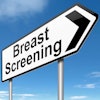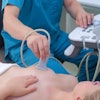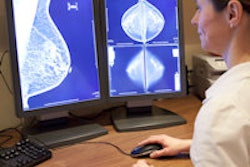Women trying to decide when to start breast cancer screening might want to consider their menopausal status, according to a study published October 20 in JAMA Oncology from researchers at the University of California, Davis (UC Davis).
A team led by Diana Miglioretti, PhD, separated women by age and by menopausal status, comparing the proportion of breast cancers with less favorable prognoses to those with better prognoses in women screened annually versus every two years. The study findings address a long-debated question about how menopausal status might affect the frequency of breast cancer screening, according to Miglioretti and colleagues.
"Menopausal status may be more important than age when considering breast cancer screening intervals," they wrote.
The researchers used Breast Cancer Surveillance Consortium (BCSC) data from more than 15,000 women ages 40 to 85 who were diagnosed with breast cancer within one year of an annual screening mammogram or within two years of a biennial exam. They defined annual exams as those performed 11 to 14 months apart and biennial exams as those performed 23 to 26 months apart -- shorter screening intervals than previously outlined by BCSC (JAMA Oncol, October 20, 2015).
The group found differences based on women's menopausal status rather than their age: Premenopausal women diagnosed with invasive breast cancer after a biennial screening mammogram were more likely to have tumors with less favorable prognostic characteristics than women diagnosed after an annual screening mammogram. Postmenopausal women not using hormone therapy who were diagnosed with breast cancer following a biennial or annual screen had similar proportions of tumors with less favorable prognostic characteristics.
"[Our results] suggest that postmenopausal women may be safely screened every two years ... [while] premenopausal women who are undergoing screening may want to be screened annually to increase their chances of diagnosing cancer at an early stage," Miglioretti said in a statement released by UC Davis.
The data could prove very helpful, according to Robert Smith, PhD, director of cancer screening at the American Cancer Society (ACS), which published revised breast cancer screening guidelines on the same day Miglioretti's study was published.
"We've been talking women under 50 or women older 50 regarding screening frequency, but perhaps it would be more accurate to talk about women's menopausal status instead," he told AuntMinnie.com.



















